Happy Sunday. The presidential election is over, but grand pronouncements and talk of governing mandates are sure to follow. So will, in all likelihood, the same sort of division and polarization between (and even within) certain factions.
Today Hannah Anderson writes on how the problems and moment we find ourselves in—both of which transcend electoral politics—call for a renewed understanding of what’s perhaps a long-lost virtue: humility.
Hannah Anderson: Remembering Humility as a Virtue

With Donald Trump’s decisive win this week, the 2024 presidential election has come to an end. Americans are exhausted and have earned the right to a break from politics, at least for a bit; but soon, we’ll need to start moving toward a new reality. And among the first things we’ll need to do—especially with the specter of the coming holidays and family gatherings that will bring political opponents together around the same table—is to answer the question Bonnie Kristian posed last week: How do we live with one another?
Whatever form the answer takes, it will require deep humility on all our parts.
We often mistake humility as a kind of deference or respectability. Culturally, we may even associate it with persona: The humble person is the quiet person, the one who hangs back on the edges and doesn’t attract attention, who doesn’t have strong opinions—who for all purposes becomes a non-entity.
But classically speaking, humility simply means living in the reality of the human condition. The word “humility” comes from the Latin root for “ground” (hum-) which it shares with both “human” and “humus”—that nutrient rich soil that gardeners love. In this way, humility suggests a kind of groundedness or acceptance of our limits as earthbound creatures. Humility puts us in our place, teaching us that for all our ambitions and aspirations, our lives are lived in this moment, in this time, in this place.
Philosopher and St. Augustine scholar James K.A. Smith wrote recently about a kind of political humility that honors our identity as limited, created beings—and that might guide us through the coming days. Citing Augustine’s own political theology as expressed in The City of God, Smith argues for a kind of holy impatience that prays and works for the just world that God promises to bring while knowing it doesn’t depend on us. But, he continues, this:
is not the same as what Martin Luther King Jr. called ‘the tranquilizing drug of gradualism,’ which uses waiting as a code for enshrining the status quo. On the other hand, even a properly prophetic desire and hunger must avoid the hubris of thinking we could socially engineer our way out of the world’s brokenness by our own ingenuity. As Immanuel Kant would put it centuries after Augustine: all of our human political constructions are built with the crooked timber of human beings.
The old.
One very practical way of exercising such humility is facing the actual state of our political system. It seems to me that much of the derision we hold toward fellow citizens stems from a false sense of power—especially in regard to our vote. We have been taught the power of the ballot box to correct injustice, such as when Americans used it to ratify the 19th Amendment to remove sex as a barrier to voting. We rightly work for free and fair elections. We fight for the disenfranchised, to make sure that every vote counts.
But the truth is that only some power lies in the hands of the average voter. Despite the billions of dollars spent campaigning, backroom gerrymandering, and even bomb threats to eke out the slimmest of margins in the final vote count, the actual election is the last step of the representative process. By the time we receive our ballots, a hundred thousand choices have already been made upstream of the voter that affect our own very limited choice in that moment.
What this means practically is that your neighbor who voted differently than you may not have the power to destroy or save democracy as we’ve been told. Correspondingly, any pride you feel in what your own vote accomplished must be mitigated as well. Yes, we each have the privilege of a vote, which means we each have the responsibility to steward it. We must take pride in fulfilling this responsibility, to inform ourselves, follow our conscience, and encourage others to do the same. But at the end of day, the greatest power lies with those further upstream which also means that greatest responsibility also lies with them.
Consider how the Republican Party’s platform changed on abortion this summer—a change driven in large part by then-candidate Trump’s desire to minimize the role it might play in the coming November election. The change took many pro-life delegates off-guard, including those on the platform committee. According to longtime participant Gayle Ruzicka, the vote happened quickly without the chance to craft language in a subcommittee, propose amendments, or debate the text. In response, former Vice President Mike Pence urged delegates to restore the original language at the party’s national convention; and while there was technically a path to do so, it was never a viable one. In the end, delegates (and their votes) exist within a system, and those in control of the system were able to manipulate the process toward a certain end.
Oddly enough, I’ve heard folks argue that being ensconced in the political process explains why representatives and party leaders are justified in making decisions to increase the likelihood that they themselves remain in power rather than being concerned with whether voters’ views are adequately represented—as if the realities of politics make leaders’ needs greater than that of the voters. But this is completely upside down. Those with more power have more responsibility to ensure that our nation has wise, just, and, yes, humble options to select from. Forgoing this responsibility in order to protect one’s own seat at the table automatically disqualifies you as a leader because at best, it suggests that you yourself are somehow essential to the process.
The new.
Because as much as we, the individual voters, need to understand the limits of our power, our elected leaders must understand the limits of theirs. I am not speaking of respecting the limits of a particular office (although this is a baseline for good governance) so much as the humility of understanding where they sit in the timeline of history. If data is correct, Trump’s victory has less to do with himself and his proposed policies than with broader historic trends being replicated globally.
Analyst and Financial Times reporter John Burn-Murdoch recently shared data showing that in 2024, every governing party facing election in a developing country lost vote share. This is the only such occurrence since 1905, when such data began being collected, he said. Incumbents around the world are being shown the door in what can only be understood as a collective rejection of the established ways of governing.
I heard theologian Miroslav Volf, director of the Yale Center for Faith and Culture, name this phenomenon recently when he spoke at a gathering promoting civic and cultural renewal through the arts. He named our current era as a moment of “rupture,” a shifting in epochs as one age falls away and a new one comes.
Massive shifts in technology and the way we access information explain some of these changes, as does living in the wake of a global pandemic. But these visible realities have led to invisible ruptures, including deepening alienation and cynicism. The world as we knew it is breaking apart in radical and sometimes violent ways, and the United States is not immune to it. Because of this, it would be foolish (and arrogant) to believe that this election was a mandate for a particular type of governance or candidate. More likely, it was a rejection of the status quo—a rejection that by definition privileges outsiders.
Newly elected New Jersey Sen. Andy Kim reflected on this reality this week. In 2020, he was one of seven Democrats who won a congressional district that Trump had also won. He got curious and wanted to understand why his constituents voted as they did, so he held listening sessions with them:
Across the board the conversations began with expressions of what I can only describe as a deep disgust in politics. Severe distrust in politicians and the status quo. … There was a clear belief that Trump was different. Some raised real concerns about Trump’s policies and personality, but those concerns didn’t override their disgust. … But for these voters, they also saw me as “different”… There were other issues raised but the main point I wanted to convey is that the hinge was on what it means to be “different.” Not about being just different from Trump, but different from the same-old-same old, entrenched politics that people are wholly angry at.
If we are truly living in a time of rupture—a time when people are so desperate for change that any change will do—we must have the humility to recognize that. The shifts happening around us are not the result of strategic genius, flawed campaigns, or a mandate to govern. If larger forces like technological and epistemological change are in play, credit and blame must go to them. Republicans are simply riding a wave that could drag them under at any moment. And the rest of the nation with them.
The good and true.
Our present reality should also evoke a deep humility from us; or as they used to say, “put the fear of God in us.” We must have a sobriety about us. We need the kind of wisdom that can move us safely through chaotic, disruptive times—the kind of wisdom that only comes from humility.
To be honest, I have not seen this kind of humility represented in the ethos of the incoming administration. Instead, the Trump campaign has been shaped by a culture of self-aggrandizing, vitriol, and political triumphalism, using political positions and social policy as a stand-in for virtue. In the last few weeks, he has once again taken delight in repeating a story of a supporter who named him the best president the country has ever had—better than George Washington and Abraham Lincoln even.
All this is an exercise in hubris.
Earlier I appealed to privilege and responsibility—that learning to live together requires a clarity about the power that each of us holds and thus what each of us is responsible for. So, what is the average citizen’s responsibility in this moment? I think it’s fairly simple. Your responsibility and mine is to become a wise, virtuous person. Our responsibility is to become the kind of citizen who, if replicated across the whole of our nation, would make for a just, virtuous society that cares for all. There is no way we can hope for a common good if we ourselves do not do good.
But this will mean rejecting political affiliation as a substitute for virtue or as a way to take pride in our own moral superiority. It will require humbling ourselves to accept that we still have much to learn, including from our fellow citizens with whom we disagree. Or as Sen.-elect Kim put it, “There is too much hubris in our politics. Too many people who think they have all the answers. Let’s go out and have deep and thoughtful conversations with people. Listen to them. And then earnestly work to address their concerns and rebuild trust.”
Because, the other truth about humility that we also tend to forget, is that if we don’t intentionally humble ourselves, something greater than all of us will.
More Sunday Reads
- This weekend marks the 86th anniversary of Kristallnacht—the pogroms against Jews carried out by Nazis in Germany and Austria. For Jewish Telegraphic Agency, scholar Michael Berenbaum describes why attacks on synagogues in particular were so horrific: “By attacking the synagogue, the Nazis were attacking not only the heart and soul of the Jewish community, but they were also attacking the institution that was responding to the unfolding catastrophe. Under Nazism and the imposition of increasingly stringent laws excluding Jews from institutions of everyday life, the synagogue became the replacement for those now-verboten institutions. On Monday it might become a theater because Jewish actors could not perform on the German stage. On Tuesday it became a symphony hall as Jewish musicians were dismissed from German orchestras. On Wednesday it became an opera house, because opera singers needed a place to earn a living. During the day, the synagogue served as a school for Jewish children expelled from German schools. Their teachers were often professors, writers and artists struggling to survive in a new world. The art teacher might be a world class artist, the music instructor, a concert pianist. The Jewish school was the safest place for a Jewish child; yet the most dangerous part of the student’s day was walking to and from school. Harassment was routine, bullying was accepted, violence was sanctioned. Teachers turned their backs even when they did not overly encourage the violence.”
- Religion Unplugged’s Bobby Ross Jr. is one of those religion writers whose work I try not to miss. In his weekly column wrapping up the best of the so-called “God beat” that included rundowns of various election analyses (and that is worth the read itself), he writes the following about anticipating another Donald Trump presidential term: “I’m a journalist. My son Keaton is a journalist who works as an investigative reporter for Oklahoma Watch. My wife, Tamie, is a journalist, although she is on long-term disability because of autoimmune diseases. So this won’t shock you: I’m not a fan of Trump’s ‘fake news’ trope or his labeling of journalists as ‘the enemy of the people.’ At the same time, as I’ve written previously, I recognize the gap between the news media and people of faith. Back in April, I delved into the political backlash over the ‘overhyped’ use of the term Christian nationalism. After Trump’s resounding win this week, New York Post columnist Karol Markowicz suggested that the media owe the president-elect an apology. … I’ll openly acknowledge that I struggle with the best approach to news coverage of Trump. The role of a journalist is to report facts. Trump, on the other hand, loves to exaggerate. He tells outrageous stories. He — let’s be honest — lies. He talks like the professional wrestlers I grew up watching. Trump’s supporters seem to love, or at least tolerate, his approach. His opponents? Not so much.”
A Different Kind of Sunday Show
Last week, writer and editor Bonnie Kristian wrote in this newsletter about how divided individuals can get along following the election. This week she joined me on the Dispatch Faith video podcast to discuss her piece, the election results, and why Vice President-elect J.D. Vance’s message on abortion and other issues has broken through to some religious Americans.
A Good Word
Historic, never-before-seen floods in Spain have killed more than 200 people and leveled communities. The situation there sounds much like what the American South suffered earlier this fall with Hurricane Helene. But as in that situation, religious believers in Spain have rallied to those in need, offering both physical and spiritual aid, as Edgar Beltrán reports for The Pillar: “Archbishop [Enrique] Benavent said that he believes people are thankful for the Church’s help, especially in areas where, for whatever reason, public authorities have barely been present. ‘I have a cousin in one of the affected towns and he told me that the first people that came to their help were parish groups,’ he said. ‘This makes credible the announcement of Christian hope. We have dozens of priests in the hospitals with the families waiting for the bodies of their loved ones. A lot of people have seen their faith shaken up by this, but I’m surprised how many also see this as a reason to trust in God and never let go of him.’”


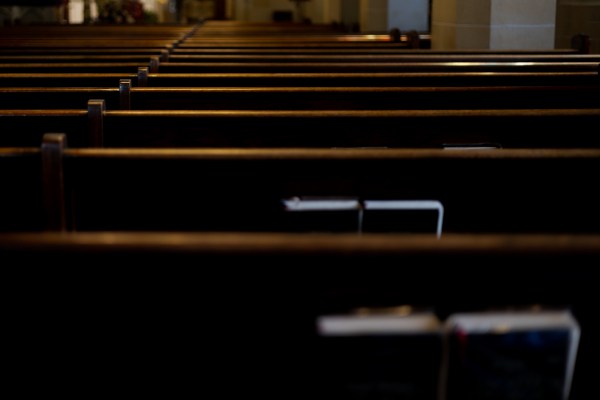
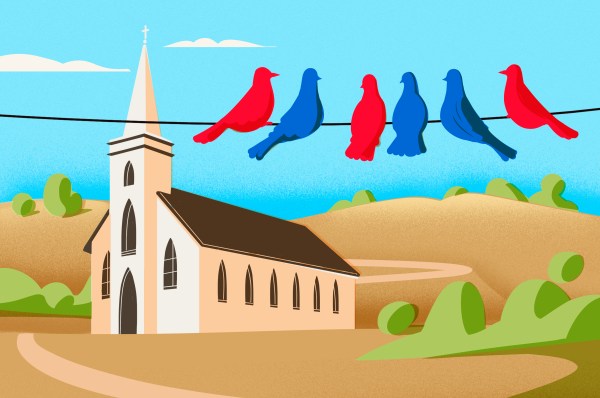
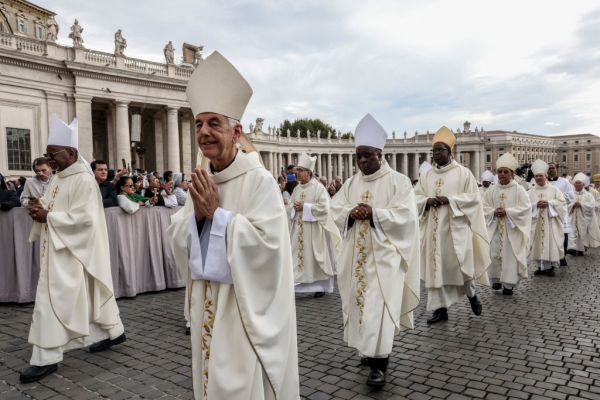
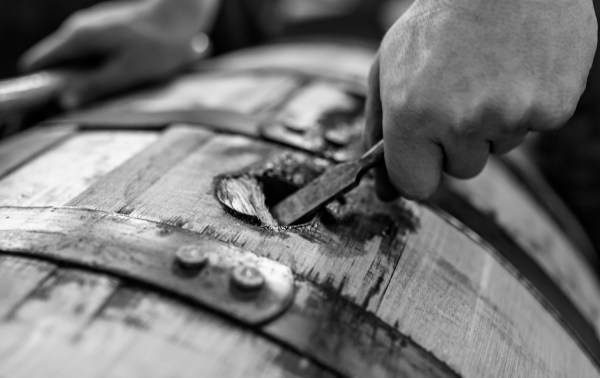
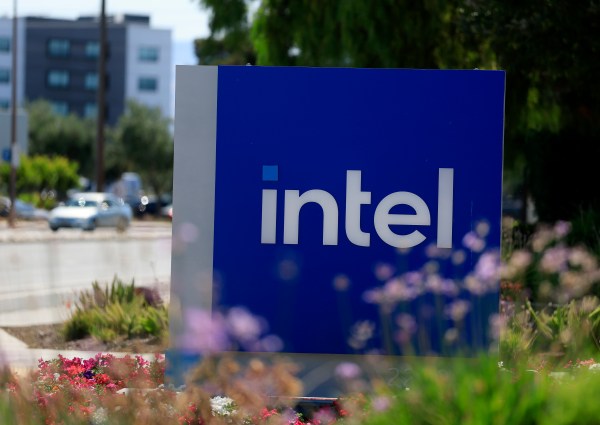
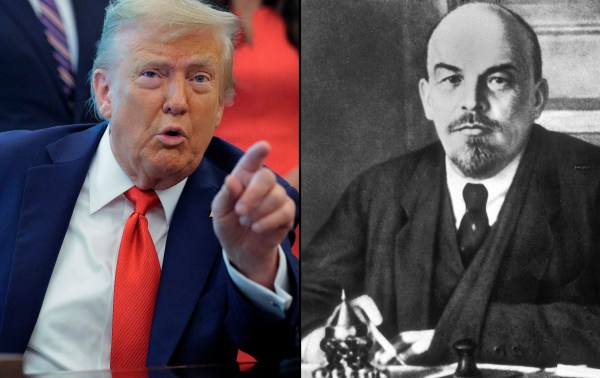
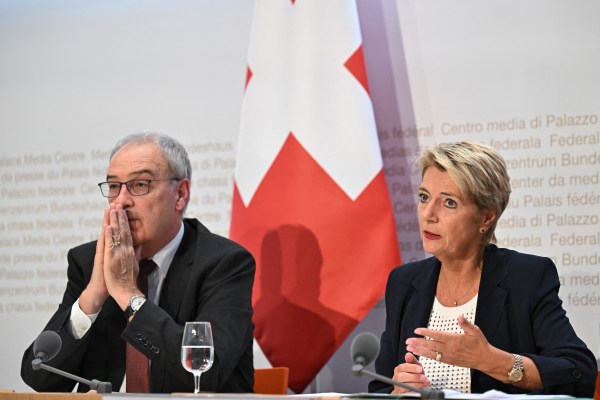

Please note that we at The Dispatch hold ourselves, our work, and our commenters to a higher standard than other places on the internet. We welcome comments that foster genuine debate or discussion—including comments critical of us or our work—but responses that include ad hominem attacks on fellow Dispatch members or are intended to stoke fear and anger may be moderated.
With your membership, you only have the ability to comment on The Morning Dispatch articles. Consider upgrading to join the conversation everywhere.